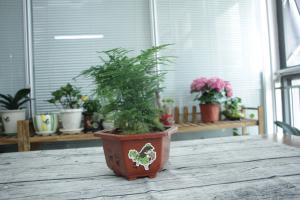Do You Need a Permit to Plant Trees in PA?
Planting trees can be a healthy and eco-friendly activity for your garden or backyard. It can help to reduce soil erosion, purify the air, and create a relaxing environment. However, if you live in Pennsylvania, you may be wondering if you need a permit to plant trees on your property. The answer is not straightforward, as it depends on several factors. This article will provide more details to help you understand the regulations in PA.
Protected Areas and Utilities
If you plan to plant trees in protected areas such as wetlands or floodplains, or close to utilities such as power lines or water mains, you will likely need a permit. Protected areas have specific regulations to prevent any potential damage to the environment or wildlife, and you will need to apply to the relevant authorities for approval. The same applies to utilities, as planting trees near power lines or water mains can pose a safety risk. You will need to contact your local utility companies or municipalities to see what their regulations are and what permits you may need.
Riparian Buffers
If you live near a waterway, you will need to follow the regulations set for riparian buffers. Riparian buffers are areas of vegetation, including trees, that help to filter pollutants from runoff and protect streambanks from erosion. The Pennsylvania Department of Environmental Protection (DEP) has specific guidelines for riparian buffers which protect water quality standards. You will need to apply for a permit from the local or state authorities to plant trees in these areas.
Urban Forestry Program
The Pennsylvania Department of Conservation and Natural Resources (DCNR) manages the Urban Forestry Program, which provides support and guidance for the planting and maintenance of trees in urban areas. If you plan to plant trees in your city or town, you may qualify for assistance from DCNR. They can provide resources and guidance on selecting the right species and planting locations and help to connect you with local resources and organizations.
Private Property and Neighborhoods
If you plan to plant trees on your own residential property or in a neighborhood, you may not need a permit. However, it's always a good idea to check with your homeowners' association or neighborhood authority first, as they may have specific guidelines or tree planting programs in place. It's also essential to make sure that you're not violating any zoning laws or regulations in your area.
Conclusion
Planting trees in Pennsylvania can be a rewarding and beneficial activity, but it's essential to understand the regulations and permit requirements before you start. Protected areas, riparian buffers, and utilities require permits, while assistance is available through the Urban Forestry Program for urban areas. It's always a good idea to check with your local authorities and organizations to ensure that you're following the rules and planting the right species in the right areas. With proper planning and guidance, you can enjoy the benefits of your trees for years to come.

 how many times do yo...
how many times do yo... how many planted tre...
how many planted tre... how many pine trees ...
how many pine trees ... how many pecan trees...
how many pecan trees... how many plants comp...
how many plants comp... how many plants can ...
how many plants can ... how many plants and ...
how many plants and ... how many pepper plan...
how many pepper plan...

































